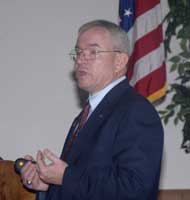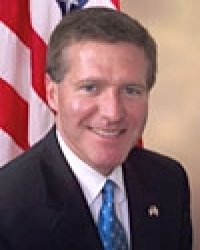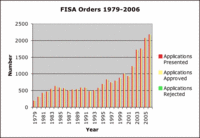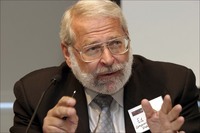 Greenwald notes that AT&T spends more in three months for
lobbying than EFF’s entire budget for a year.
Then he spells out how the lobbying revolving door works, and concludes:
Greenwald notes that AT&T spends more in three months for
lobbying than EFF’s entire budget for a year.
Then he spells out how the lobbying revolving door works, and concludes:
The “two sides” referenced there means the House Democratic leadership and the telecoms. Congressional leaders are “negotiating” with the telecoms — the defendants in pending lawsuits — regarding the best way for immunizing them from liability for their lawbreaking, no doubt with the help of the former Democratic members and staffers now being paid by the telecoms to speak to their former bosses and colleagues about what they should do. To describe the process is to illustrate its oozing, banana-republic-like corruption, but that’s generally how our laws are written.Remember, AT&T and the other telcos and cablecos are the same companies that want to nuke net neutrality in the name of competition and progress; two other flags they behind, just like the banana republic flag of national security.None of this is particularly new, but it’s still remarkable to be able to document it in such grotesque detail and see how transparent it all is. In one sense, it’s just extraordinary how seamlessly and relentlessly the wheels of this dirty process churn. But in another sense, it’s perhaps even more remarkable — given the forces lined up behind telecom amnesty — that those who have been working against it, with far fewer resources and relying largely on a series of disruptive tactics and ongoing efforts to mobilize citizen anger, have been able to stop it so far.
— How telecoms are attempting to buy amnesty from Congress, Glenn Greenwald, Salon.com, Saturday May 24, 2008 06:48 EDT
-jsq







